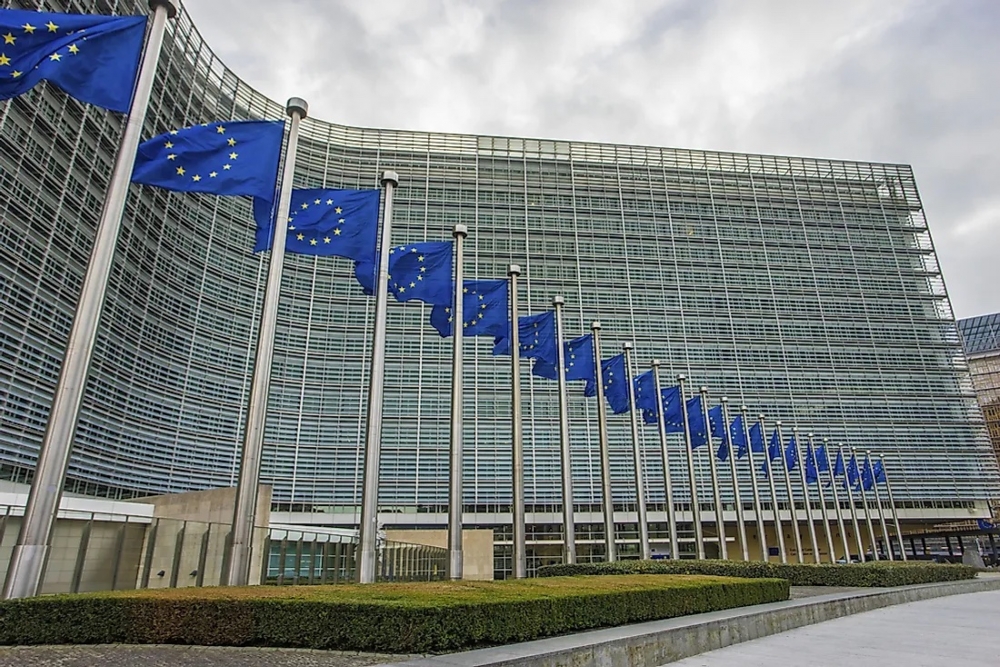Apple expected to face antitrust charges in the EU over NFC chip
- According to experts, Apple will face an EU antitrust charge over its NFC chip technology.
- This could put it at risk of a potentially large fine and force it to open up its mobile payment system to competitors.
- Since June of last year, the iPhone maker has been in the crosshairs of European Union antitrust chief Margrethe Vestager.
According to experts, Apple will face an EU antitrust charge over its NFC chip technology, putting it at risk of a potentially large fine and forcing it to open up its mobile payment system to competitors. Since June of last year, when Margrethe Vestager launched an investigation into Apple Pay, the iPhone maker has been in the crosshairs of European Union antitrust chief Margrethe Vestager.
Apple's NFC chip, which enables tap-and-go payments on iPhones, the company's terms and conditions for how mobile payment service Apple Pay should be used in merchants' apps and websites, and the company's refusal to allow rivals access to the payment system were among the initial concerns.
 According to one of the sources, the European Commission has narrowed its focus to just the NFC chip, which can only be accessed by Apple Pay. The EU competition enforcer is currently preparing a charge sheet known as a statement of objections, which could be sent to Apple next year. Typically, such documents lay out practices that the regulator deems anti-competitive.
According to one of the sources, the European Commission has narrowed its focus to just the NFC chip, which can only be accessed by Apple Pay. The EU competition enforcer is currently preparing a charge sheet known as a statement of objections, which could be sent to Apple next year. Typically, such documents lay out practices that the regulator deems anti-competitive.
The Commission, which is currently investigating Apple in three other cases, has declined to comment. For breaking EU rules, companies can be fined up to 10% of their global turnover, which, based on Apple's 2020 revenue, could amount to $27.4 billion. Apple was not immediately available for comment, citing privacy and security concerns in its Apple Pay policy.
 Because of the COVID-19 pandemic, NFC-enabled payments have grown in popularity. According to some analysts, Apple Pay's broad reach and superior consumer experience on a mobile website or in stores give it a competitive advantage over competitors. Other regulators and authorities are also keeping an eye on Apple Pay. Last month, South Korea passed legislation prohibiting major app store operators, such as Apple, from requiring software developers to use their payment systems.
Because of the COVID-19 pandemic, NFC-enabled payments have grown in popularity. According to some analysts, Apple Pay's broad reach and superior consumer experience on a mobile website or in stores give it a competitive advantage over competitors. Other regulators and authorities are also keeping an eye on Apple Pay. Last month, South Korea passed legislation prohibiting major app store operators, such as Apple, from requiring software developers to use their payment systems.
In 2019, Germany passed legislation requiring Apple to open its mobile payments system to competitors for a fee. The Dutch competition watchdog launched an investigation into the App Store and its requirement that app developers use its payment systems for in-app purchases and pay a 30% fee in the first year.
Recommended by the editors:
Thank you for visiting Apple Scoop! As a dedicated independent news organization, we strive to deliver the latest updates and in-depth journalism on everything Apple. Have insights or thoughts to share? Drop a comment below—our team actively engages with and responds to our community. Return to the home page.Published to Apple Scoop on 6th October, 2021.
No password required
A confirmation request will be delivered to the email address you provide. Once confirmed, your comment will be published. It's as simple as two clicks.
Your email address will not be published publicly. Additionally, we will not send you marketing emails unless you opt-in.